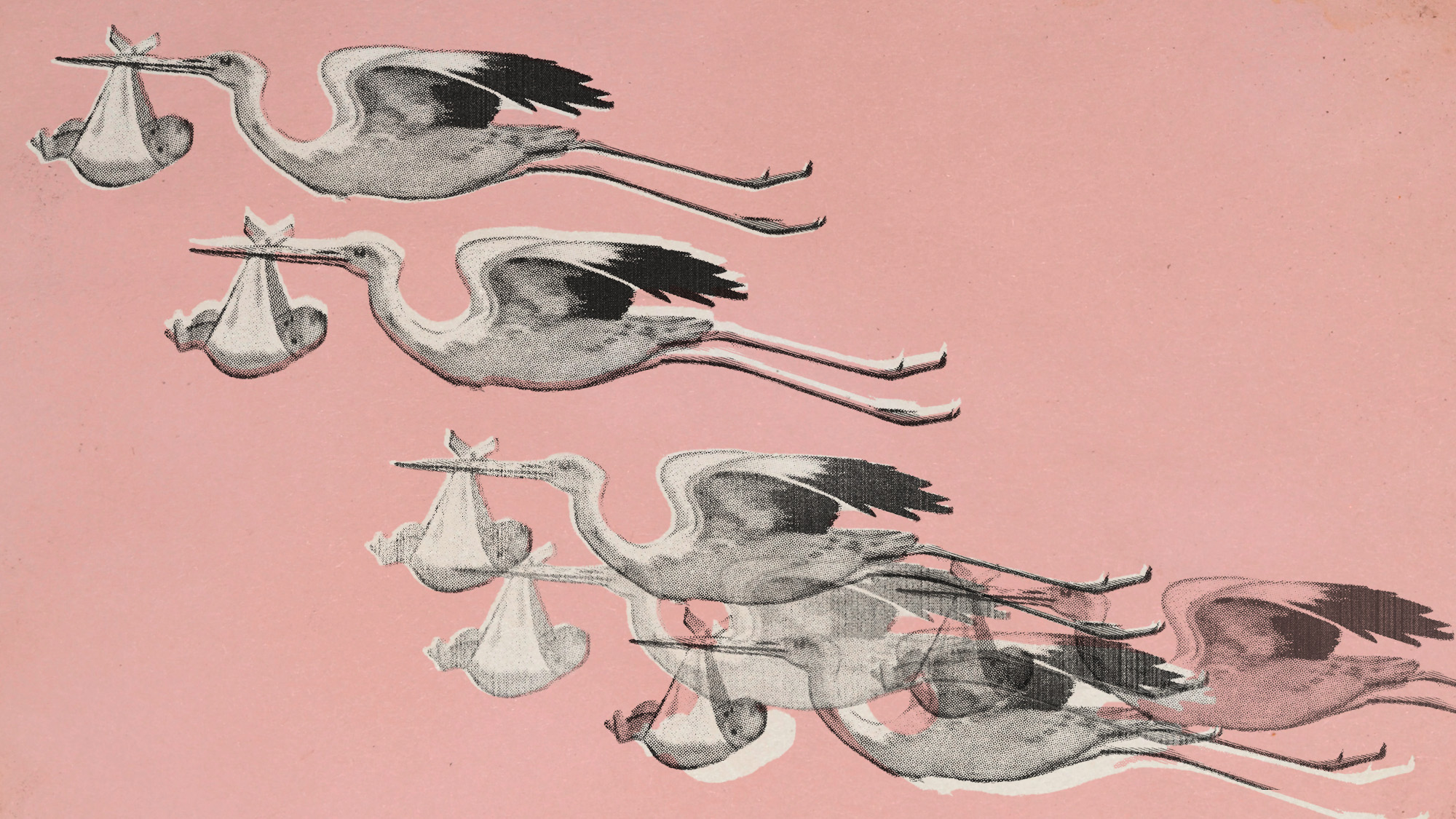Five things you may not know about Raymond Briggs
The Snowman author ‘tried to avoid children’ and described himself as a ‘creative sociopath’

A free daily email with the biggest news stories of the day – and the best features from TheWeek.com
You are now subscribed
Your newsletter sign-up was successful
The author-illustrator Raymond Briggs, best known for his 1978 work The Snowman, has died at the age of 88.
Confirming his death, his family said he “was much loved and will be deeply missed”. Hilary Delamere, his literary agent, said Briggs “liked to act the professional curmudgeon, but we will remember him for his stories of love and of loss”.
He created a “host of much-loved characters”, said The Guardian. The Snowman sold more than 5.5m copies around the world, and Briggs also created popular children’s books Father Christmas and Fungus The Bogeyman.
The Week
Escape your echo chamber. Get the facts behind the news, plus analysis from multiple perspectives.

Sign up for The Week's Free Newsletters
From our morning news briefing to a weekly Good News Newsletter, get the best of The Week delivered directly to your inbox.
From our morning news briefing to a weekly Good News Newsletter, get the best of The Week delivered directly to your inbox.
Here are some lesser-known facts about the fondly remembered artist.
He served in the Royal Signals
Writing for The Times in 2004, Rod Liddle denounced Briggs’s nuclear war story When the Wind Blows as representing “the spirit and mental acuity of the pacifist” and Briggs was also denounced in the House of Lords as the dupe of a KGB-inspired plot.
However, he had served as a National Service conscript in the Royal Corps of Signals at Catterick between 1953 and 1955, where his artistic flair was put to work as a draughtsman, noted the Daily Mail. “Much to his disgust,” he was asked to draw electrical circuits, noted the BBC.
He wasn’t interested in children
Despite being famous for his books for children, Briggs said he was not a fan of kids. “I’ve never been particularly interested in children at all, as such,” he told The Guardian in 2016. He said he didn’t “particularly dislike them” but was not “a child lover”.
A free daily email with the biggest news stories of the day – and the best features from TheWeek.com
When he was considered for the role of children’s laureate he said he “wouldn’t touch it with a bargepole,” adding: “I don’t actually know anything much about children. I try to avoid them whenever possible.”
He was a ‘creative sociopath’
Briggs was often described as a “curmudgeon” but those closest to him have suggested this was partly an act. Briggs told The Guardian he preferred to regard himself as a “creative sociopath”. A definition of this, pinned up on his wall, stated that: “artistic people… can appear self-absorbed, impulsive, impatient and intolerant”. After reading the definition aloud to the interviewer, he added: “Brilliant. That’s me to a tee.”
His wife had schizophrenia
His wife, Jean Taprell Clark, had schizophrenia and although he was not the “marrying type” he said he decided to marry her “mainly because I thought it would help her mental state – give her a feeling of stability”. Briggs wrote that he found her schizophrenia “inspiring” because it meant “her feelings about nature and experiences of life were very intense”, noted The Times. She died in 1973, of “schizophrenia combined with leukaemia”, which he described as “a jolly one-man-band”. His second partner, Liz Benjamin, also died, in 2015.
Adult fans pretended to be children
Adult collectors wrote to him pretending to be children in the hope of getting their hands on memorabilia, Briggs told The Telegraph in 2004. However, he explained, he spotted the ruse a mile off. “They’re just middle-aged anoraks out for something to flog – ghastly, stupid individuals,” he said. “You know what a child would write, and how they’d write it. These ones… no, I won’t say what’s wrong with them because somebody might read this and adjust their forged letter appropriately.”
Chas Newkey-Burden has been part of The Week Digital team for more than a decade and a journalist for 25 years, starting out on the irreverent football weekly 90 Minutes, before moving to lifestyle magazines Loaded and Attitude. He was a columnist for The Big Issue and landed a world exclusive with David Beckham that became the weekly magazine’s bestselling issue. He now writes regularly for The Guardian, The Telegraph, The Independent, Metro, FourFourTwo and the i new site. He is also the author of a number of non-fiction books.
-
 How the FCC’s ‘equal time’ rule works
How the FCC’s ‘equal time’ rule worksIn the Spotlight The law is at the heart of the Colbert-CBS conflict
-
 What is the endgame in the DHS shutdown?
What is the endgame in the DHS shutdown?Today’s Big Question Democrats want to rein in ICE’s immigration crackdown
-
 ‘Poor time management isn’t just an inconvenience’
‘Poor time management isn’t just an inconvenience’Instant Opinion Opinion, comment and editorials of the day
-
 Child-free train carriages: has push for adults-only spaces gone too far?
Child-free train carriages: has push for adults-only spaces gone too far?Talking Point Under-12s ban on premium commuter train carriages in France sparks backlash across the political divide
-
 The 8 best animated family movies of all time
The 8 best animated family movies of all timethe week recomends The best kids’ movies can make anything from the apocalypse to alien invasions seem like good, wholesome fun
-
 Is a social media ban for teens the answer?
Is a social media ban for teens the answer?Talking Point Australia is leading the charge in banning social media for people under 16 — but there is lingering doubt as to the efficacy of such laws
-
 A House of Dynamite: a ‘nail-biting’ nuclear-strike thriller
A House of Dynamite: a ‘nail-biting’ nuclear-strike thrillerThe Week Recommends ‘Virtuoso talent’ Kathryn Bigelow directs a ‘fast-paced’ and ‘tense’ ‘symphony of dread’
-
 Sharenting: does covering children's faces on social media protect them?
Sharenting: does covering children's faces on social media protect them?In The Spotlight Privacy trend has 'trickled down' from celebrity parents but it may not protect your kids
-
 Why Vietnam is dropping its two-child policy
Why Vietnam is dropping its two-child policyUnder The Radar Relaxation of family limit to boost birth rates – but 'baby boom' not certain
-
 Disney is still shielding Americans from an episode of 'Bluey'
Disney is still shielding Americans from an episode of 'Bluey'Talking Points The US culture war collides with a lucrative children's show
-
 'Making memories': the scourge of modern parenting?
'Making memories': the scourge of modern parenting?In The Spotlight Meghan Markle sends her children emails of each day's 'moments' but is constant 'memory-making' just another burden for parents to bear?